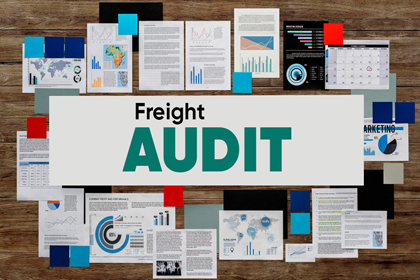In today's competitive logistics landscape, companies are constantly striving to reduce operational costs while simultaneously improving service efficiency. Fuel costs and delivery times are two critical factors that affect the overall performance of any supply chain, especially in industries relying heavily on transportation. One innovative solution that is gaining traction in the industry is the use of Intelligent Clustering for delivery route optimization. By leveraging advanced algorithms and real-time data, this approach minimizes fuel consumption and reduces delivery times, ensuring an efficient and sustainable logistics operation.

Understanding Intelligent Clustering
At its core, Intelligent Clustering involves grouping similar tasks or operations based on various criteria such as proximity, delivery deadlines, and vehicle capacity. It integrates data-driven insights to create optimized clusters of deliveries that can be handled together, rather than treating each task individually. These clusters help logistics teams plan more efficient routes and reduce unnecessary travel, ultimately leading to savings on fuel and time.
By utilizing machine learning algorithms and artificial intelligence (AI), Intelligent Clustering can analyze vast amounts of data from multiple sources—ranging from GPS data, traffic patterns, fuel consumption rates, and vehicle maintenance records—to make smarter decisions in real time.
Key Benefits of Intelligent Clustering in Logistics
1. Reduced Fuel Costs
Fuel expenses often account for a significant portion of transportation costs. With fluctuating fuel prices and the growing push for sustainability, reducing fuel consumption has become a priority for businesses. Intelligent Clustering tackles this issue by optimizing routes and minimizing the distance traveled by delivery vehicles.
When deliveries are grouped based on proximity and route efficiency, vehicles spend less time on the road. This means fewer miles driven and reduced fuel consumption. Additionally, Intelligent Clustering can adjust for real-time factors like traffic congestion, road conditions, and weather, helping vehicles avoid unnecessary detours that lead to wasted fuel.
2. Faster Delivery Times
Customer expectations for fast deliveries continue to rise, particularly in the era of e-commerce and instant gratification. Whether it’s B2B or B2C logistics, timely deliveries are essential to maintaining customer satisfaction and staying competitive. Intelligent Clustering ensures faster delivery times by eliminating redundant trips and streamlining the entire delivery process.
By creating optimized delivery clusters, logistics companies can serve more customers in less time. Additionally, AI-powered algorithms factor in peak traffic hours, road closures, and other real-time events to suggest the quickest possible routes. The result? Not only does the fleet use less fuel, but customers also receive their orders sooner.
3. Improved Fleet Utilization
Intelligent Clustering also enhances the overall utilization of the fleet. Traditional logistics often struggle with inefficient vehicle allocation, leading to underutilized trucks or delivery vans making trips with minimal cargo. This inefficiency not only increases costs but also adds unnecessary wear and tear to the fleet.
With clustering, delivery schedules are aligned with vehicle capacity and load requirements, ensuring that each trip is fully maximized. Vehicles are loaded more efficiently, which reduces the number of trips needed and further decreases fuel consumption. Improved fleet utilization also leads to better asset management, reducing the need for constant maintenance or repairs due to overuse of vehicles.
4. Reduced Environmental Impact
As companies become more conscious of their environmental footprint, reducing carbon emissions has become a key consideration in supply chain operations. The transportation sector is one of the largest contributors to greenhouse gas emissions, and optimizing fuel consumption is a major step towards sustainability.
By minimizing the total distance traveled and reducing idling time, Intelligent Clustering directly helps companies lower their carbon emissions. It is a win-win strategy: not only does it cut operational costs, but it also supports corporate sustainability goals, which are becoming increasingly important to stakeholders and customers alike.
5. Enhanced Customer Experience
Logistics companies that adopt Intelligent Clustering can offer a more reliable and consistent service to their customers. Real-time tracking, coupled with dynamic route adjustments, enables more accurate delivery time estimates. This transparency and efficiency translate into a better overall customer experience.
In industries where deliveries are time-sensitive, such as perishable goods or pharmaceuticals, these improvements can be crucial. Meeting tight deadlines without compromising on service quality builds trust with customers, which is essential for retaining business and fostering long-term relationships.
How Intelligent Clustering Works
To implement Intelligent Clustering effectively, logistics companies need to integrate advanced technology into their operations. Here's how the process generally works:
- Data Collection: The first step involves gathering data from multiple sources, including GPS trackers, telematics systems, fuel consumption data, vehicle maintenance reports, and customer order information.
- Cluster Formation: Using machine learning algorithms, the system processes the data to identify patterns and similarities. Deliveries that are located near each other, have similar delivery times, or require similar vehicle types are grouped into clusters.
- Route Optimization: Once the clusters are formed, the system analyzes various factors such as traffic, road conditions, and vehicle capacity to determine the most efficient routes. These routes are designed to minimize travel time and distance, thereby reducing fuel consumption.
- Real-Time Adjustments: The beauty of Intelligent Clustering lies in its ability to adjust routes in real-time. For example, if there is an unexpected traffic jam or a last-minute change in delivery, the system can recalibrate routes instantly to ensure minimal disruption.
- Continuous Learning: Over time, the system becomes smarter by learning from previous deliveries. This continuous learning process allows for even greater efficiency as the system refines its algorithms based on real-world feedback.
Industry Use Cases of Intelligent Clustering
Several industries have successfully adopted Intelligent Clustering to streamline their logistics operations:
- E-Commerce: Companies like Amazon and Alibaba have long embraced AI-driven clustering techniques to meet customer demand for fast and efficient deliveries. By clustering deliveries, they can serve urban areas with dense populations more efficiently while reducing the strain on their fleets.
- Food & Beverage: In industries where perishability is a concern, Intelligent Clustering helps companies meet tight delivery windows without wasting resources. By optimizing routes for freshness, companies can reduce spoilage while keeping fuel costs low.
- Pharmaceuticals: In the healthcare sector, timely deliveries can be a matter of life and death. Clustering ensures that sensitive products like medicines and vaccines are delivered on time, while also reducing operational costs in the process.
Challenges in Implementing Intelligent Clustering
Despite its numerous benefits, implementing Intelligent Clustering comes with its own set of challenges.
- Initial Investment: Deploying intelligent systems for clustering and optimization can be expensive, requiring significant upfront investment in technology and infrastructure.
- Data Integration: Effective clustering relies on a robust data ecosystem. Many logistics companies face challenges when it comes to integrating legacy systems and disparate data sources into a unified platform for real-time decision-making.
- Change Management: Introducing new technologies like AI and machine learning into a logistics operation requires cultural and operational changes. Staff training and adaptation to new systems are critical for successful implementation.
The NaaviQ Advantage
NaaviQ's Transport Management System (TMS) takes the benefits of Intelligent Clustering to the next level. By combining cutting-edge AI algorithms with real-time data integration, NaaviQ provides logistics companies with the tools they need to minimize fuel costs and delivery times. Whether you're managing a small fleet or a large-scale logistics operation, NaaviQ TMS offers a powerful platform to optimize your delivery processes and improve overall efficiency.
Why Choose NaaviQ?
- Real-Time Route Optimization: NaaviQ’s TMS adapts to changing conditions in real-time, ensuring your fleet is always on the most fuel-efficient path.
- Advanced Data Analytics: Leverage data insights to continuously improve your logistics operations and make smarter, data-driven decisions.
- Seamless Integration: NaaviQ’s TMS integrates with existing ERP systems to provide a unified platform for managing all aspects of transportation, from planning to execution.
Conclusion
The future of logistics lies in intelligent, data-driven solutions. Intelligent Clustering represents a game-changing approach to reducing fuel costs, improving delivery times, and enhancing overall operational efficiency. By adopting this technology, logistics companies can not only improve their bottom line but also contribute to a more sustainable future.
Ready to take your logistics operations to the next level? Contact NaaviQ today and discover how our intelligent TMS solutions can help you achieve greater efficiency while minimizing costs.




